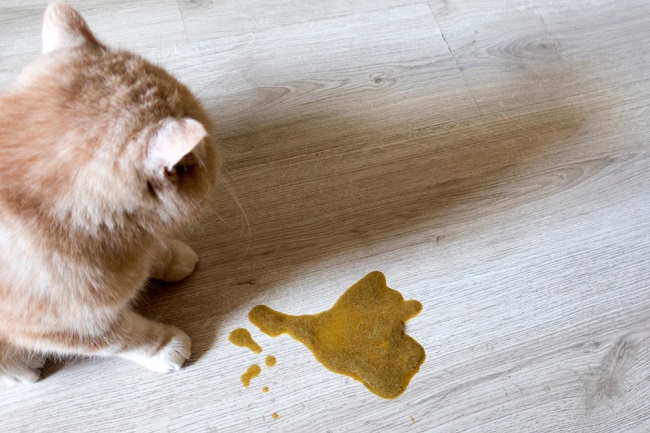Caring for a cat that frequently vomits can be a stressful experience. While occasional vomiting may not be a cause for alarm, consistent occurrences can be a sign of underlying health issues.
A targeted nutritional approach can be a vital part of managing this condition. This article explores the recommended food for cats that vomit, providing deep insights into diet modification and helpful tips.

Unveiling the Vomiting Issue in Cats
Vomiting in cats can occur due to various reasons, including eating too fast, dietary indiscretion, allergies, and more serious health problems.
It’s always important to consult with a vet if your cat vomits frequently, as diet changes should be made in conjunction with professional medical advice.
Dietary Adjustments for Cats that Vomit
Here are some dietary managements for cats that vomit:
Switch to Easily Digestible Foods
Cats with sensitive stomachs can benefit from easily digestible foods. These include foods with few ingredients, novel proteins (proteins your cat hasn’t eaten before), and prebiotics to support healthy digestion.
Consider Hypoallergenic Diets
If allergies are causing your cat’s vomiting, a hypoallergenic diet might be helpful. These diets typically feature hydrolyzed proteins, which are less likely to trigger an allergic response.
Gradually Transition to New Foods
Rapid changes in diet can upset your cat’s stomach. When introducing new food, do so gradually, mixing it with the old food and slowly increasing the new food’s proportion over a week or so.
Feed Smaller, More Frequent Meals
Feeding your cat smaller meals throughout the day can help manage vomiting. It’s easier on their stomach and can prevent vomiting due to eating too quickly or overeating.
Keep Your Cat Hydrated
Cats that vomit frequently can become dehydrated. Ensure they have access to fresh, clean water at all times.
Consult with a Veterinarian
Before making any significant changes to your cat’s diet, consult with a veterinarian. They can provide personalized advice based on your cat’s specific needs.
Specialized Cat Foods for Cats that Vomit
There are specialized cat foods available in the market specifically formulated to aid digestion and help reduce vomiting. These include:
Probiotic Foods
Probiotics are beneficial bacteria that promote a healthy gut. Some cat foods include these probiotics to help support a balanced gut flora, which can improve digestion and reduce instances of vomiting.
Fiber-Rich Foods
Fiber can help regulate your cat’s digestive system, making it easier for them to process their food. It also helps in forming well-structured stool, which can alleviate gastrointestinal issues causing vomiting.
Limited Ingredient Diets
Limited ingredient diets (LIDs) are great for cats with food sensitivities. They contain fewer ingredients, reducing the chance of your cat reacting negatively to something they eat.
The Role of Hydration in Reducing Vomiting
Staying hydrated is crucial for all cats, but it’s especially important for cats that often vomit. Dehydration can cause or exacerbate health issues, including those relating to the digestive system.
Offering wet food can help keep your cat hydrated, as it typically contains up to 80% water. You could also consider cat water fountains to encourage your cat to drink more.
Importance of Regular Vet Check-ups
Regular vet check-ups are essential for cats that frequently vomit. Vomiting can be a symptom of many health issues, including kidney disease, thyroid problems, and gastrointestinal disorders.
Regular check-ups help ensure any serious conditions are identified and treated promptly. By carefully managing your cat’s diet, maintaining good hydration, and keeping up with vet check-ups, you can ensure your cat enjoys a happier, healthier life.
Remember, each cat is unique, so what works for one might not work for another. It’s always best to tailor your approach to your cat’s specific needs, with the guidance of your veterinarian.
Conclusion
While occasional vomiting can be normal in cats, frequent vomiting requires attention. Through dietary changes such as providing easily digestible foods, considering hypoallergenic diets, and feeding smaller, more frequent meals, you can help manage your cat’s vomiting.
Remember, it’s crucial to work closely with a vet to identify the cause of the vomiting and tailor a suitable dietary response. With the right approach, you can improve your cat’s health and quality of life.
























